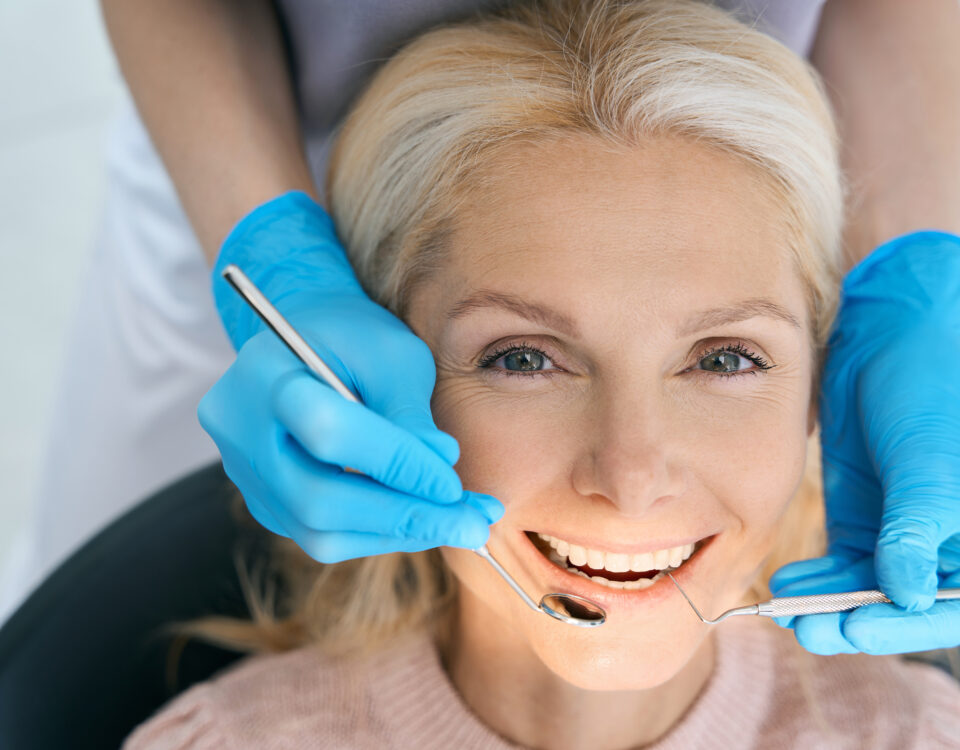Why You May Need to Remove Your Wisdom Teeth

The Link Between Sleep Apnea and Dental Health
February 23, 2023
The Negative Effects of Tooth Loss
March 9, 2023If you are like most people, you probably have four wisdom teeth – one on each side of your jaw. Wisdom teeth are the last teeth to erupt, and they usually do so between the ages of 17 and 25. While many people have no problems with their wisdom teeth, others may need to have them removed. There are a number of reasons why you may need to remove your wisdom teeth, and we will discuss them in this blog post.
What are Wisdom Teeth?
First, it is important to understand what wisdom teeth are and why they may need to be removed. They are the third molars in the back of your mouth – usually there are four of them. They tend to erupt later than other teeth, typically between 17 and 25 years old – although some people may not experience them until much later.
Why Might Wisdom Teeth Need to be Removed?
Wisdom teeth can cause problems because they are often crowded, crooked or misaligned. When this happens, an impacted wisdom tooth may push against another tooth and cause pain and/or damage. In some cases, they can also become infected or decay due to a lack of proper brushing and flossing. Additionally, they may cause overcrowding in the mouth, leading to crowding of other teeth.
Impacted Wisdom Teeth
Many people develop impacted wisdom teeth — teeth that don’t have enough room to erupt into the mouth or develop normally. An impacted tooth may erupt only partially or not at all.
An impacted wisdom tooth may:
- Grow at an angle toward the next tooth (second molar)
- Grow at an angle toward the back of the mouth
- Grow at a right angle to the other teeth, as if the wisdom tooth is “lying down” within the jawbone
- Grow straight up or down like other teeth but stay trapped within the jawbone
Problems with impacted wisdom teeth
You’ll likely need your impacted wisdom tooth pulled if it results in problems such as:
- Pain
- Trapping food and debris behind the wisdom tooth
- Infection or gum disease (periodontal disease)
- Tooth decay in a partially erupted wisdom tooth
- Damage to a nearby tooth or surrounding bone
- Development of a fluid-filled sac (cyst) around the wisdom tooth
- Complications with orthodontic treatments to straighten other teeth
The Removal Process
Once your dentist or oral surgeon has determined that removal is necessary, they will explain the process to you. Your surgery should take 45 minutes or less. You’ll get one of these types of anesthesia so you don’t feel pain during the removal:
- Local: Your doctor will numb your mouth with a shot of local anesthetic such as novocaine, lidocaine or mepivicaine. You may also breathe nitrous oxide, or laughing gas, to relax or even doze during surgery. You should feel alert again shortly afterward.
- IV sedation: The surgeon will numb your mouth and also give you drugs through a vein in your arm to make you drowsy. You might sleep during the whole procedure.
- General: You’ll either get drugs through a vein or breathe gas in through a mask. You’ll be asleep the whole time and might not wake up for an hour or so after the surgery.
Your doctor may have to cut your gums or bone to get the teeth out. If so, they’ll stitch the wounds shut so they heal quickly. These stitches usually dissolve after a few days. They may also stuff gauze pads in your mouth to soak up some of the blood.
Make an Appointment with Premier Dentistry of Eagle
Wisdom teeth can cause a variety of problems if they are not properly cared for. If you are experiencing pain, discomfort, or overcrowding due to your wisdom teeth, it is important to consult with your dentist or oral surgeon. They will be able to determine whether removal is necessary and explain the procedure and post-operative care that is required. By taking the necessary steps to keep your wisdom teeth healthy, you can prevent future problems from arising and maintain a healthy mouth. If you have any questions or would like to make an appointment for a consultation, contact Premier Dentistry of Eagle today! We’re here to help you keep your teeth healthy and your smile bright.



